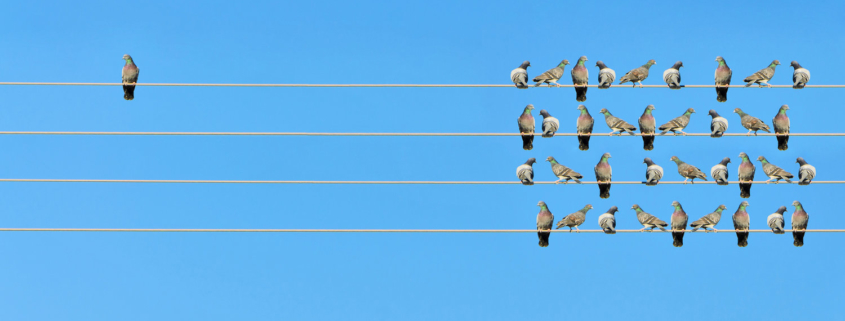Vulnerability is the essence of connection and connection is the essence of existence.
– Leo Christopher
Life is truly about connection in relationship. We long to connect and feel seen by others. This starts early in life with our first attachments. We are social beings and we need one another. Yet, it will not be a news flash to anyone reading this to state that relationships are difficult. In all forms: from romantic relationships, work relationships, parenting relationships, to friendships, they all come with a certain level of challenge. How we navigate these challenges in relationships has much to do not only with the quality of those relationships but also the quality of our life in general.
Why are relationships such a challenge? It starts possibly with the fact that to enter into a deep connection with another, we first have to be in that same type of relationship with ourselves. Intimacy with another requires the ability to know and maintain who we are as we enter into that relationship with another. One reason this is central in healthy, deeply connected relationships is its relationship with vulnerability. Connection requires vulnerability. Our ability to be vulnerable depends on our ability to handle the anxiety related to vulnerability.
Family therapy researcher, Murray Bowen, called this ability “differentiation”. Differentiation is essentially our ability to remain connected to ourselves in the presence of others. It is the ability to have a developed solid self which allows an individual to navigate the difficult emotions present in relationships. It allows an individual to act and think for themselves while being able to connect and interact with others.
“A person with a well-differentiated ‘self’ recognizes his realistic dependence on others, but he can stay calm and clear-headed enough in the face of conflict, criticism, and rejection to distinguish thinking rooted in a careful assessment of the facts from thinking clouded by emotionality. Thoughtfully acquired principles help guide decision-making about important family and social issues, making him less at the mercy of the feelings of the moment. What he decides and what he says matches what he does. He can act selflessly, but his acting in the best interests of the group is a thoughtful choice, not a response to relationship pressures. Confident in his thinking, he can support others’ views without being a disciple or reject others’ views without polarizing the differences. He defines himself without being pushy and deals with pressure to yield without being wishy-washy.” (https://thebowencenter.org/theory/eight-concepts/).
This idea of differentiation interlocks with our ability to be intimate in relationships. Brene Brown has written extensively on the concept of vulnerability and its correlation to belonging and connection in relationship. In her most recent book, Braving the Wilderness, she states, “True belonging is the spiritual practice of believing in and belonging to yourself so deeply that you can share your most authentic self with the world and find sacredness in both being a part of something and standing alone in the wilderness. True belonging does not require you to change who you are; it requires you to be who you are.” This is a difficult prospect and it demands action on our part. When we are able to do this, we can hold onto ourselves and allow others to do the same. We can tolerate the unique thoughts, feelings, and needs of others because we can tolerate those within ourselves.
How do we accomplish this? How do we find a way to be able to stand in our authentic self and bring that self to others in relationship?
This process starts and ends with us. One key to the differentiation process is being able to own our stories. If we are cut off and disconnected from parts of ourselves and our own stories it is difficult to connect to the same in others. To be authentic, we have to first know ourselves. For generations, stories are the fabric of our lives. From movies, to books, to family history, stories help us heal, encourage us, and help us make sense of ourselves and the world around us. When I was in graduate school, one of our tasks was to write our family story. This required sitting down and interviewing family members and letting them tell their part of our family story. I still have pages of written parts of these stories from family members, some who are no longer alive. I treasure these pages. While a challenge, the assignment was invaluable to my understanding of my own personal story. Often we struggle with our own stories because they are frequently filled with pain, trauma, loss, and unfulfilled dreams. Yet, all of what happens to us shapes us. Dr. Dan Siegel calls this process, narrative integration. It is the process of making sense of our stories and our inner world. It is central in the attachment process with others. Brene Brown stated that, “Owning our story can be hard but not nearly as difficult as spending our lives running from it. Embracing our vulnerabilities is risky but not nearly as dangerous as giving up on love and belonging and joy—the experiences that make us the most vulnerable. Only when we are brave enough to explore the darkness will we discover the infinite power of our light.” (Brown, 2010, p. 6).
A second key to differentiation is our ability to self-soothe or emotionally regulate. Being in relationship with another is difficult but also deeply rewarding. Navigating this process requires us to be able to manage our internal emotional world. This is the process of emotional regulation. Emotions can be challenging to navigate, particularly emotions such as anxiety, anger, fear, and frustration. The process of regulation simply means that we are able to name these emotions and manage them instead of acting out of them. We all know what it feels like to be overwhelmed by our emotions and the impact on relationships when we act out of our emotions, doing and saying things that we regret. The process of regulation, or self-soothing, allows us to ride our emotional waves without being lost in them. We are able to make healthy decisions about how to manage our emotions until they settle and we can re-engage in whatever needs our attention. These are habits that require time and attention to develop because when we feel deeply, it is often difficult to think. Practice these when you are not in crisis or emotionally overwhelmed. The more differentiated we are from those around us, the easier it is to hold onto yourself when all of the feelings come and to self-soothe.
Tips for self-soothing:
1. Going on a walk
2. Talking to a trusted friend
3. Listening to music/playing music
4. Writing in a journal
5. Mindfulness practices
6. Therapy
7. Yoga
8. Artistic pursuits
9. Taking a bath
10. Spending time with a pet
Each of these are simple activities that we can engage in to help us soothe when we are feeling overwhelmed emotionally. When we learn this process, we learn to navigate the tricky waters of our emotional world and we are able to enter into relationships from a more solid foundation. When we learn to hold onto ourselves we are able to hold onto others.
In our next blog post, we will focus on how differentiation applies to couples and healthy sexuality.
Brown, B. (2010). The gifts of imperfection: Let go of who you think you’re supposed to be and embrace who you are. Hazelden Publishing.



